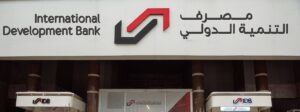The European Union is one of Uganda’s major trading partners with annual trade balance books exceeding USD 1 billion every year.
However, more and more free trade pacts are been signed across Africa, opening ever more doors to new markets right within the country and this may upset the traditional foreign trade reliance.
For, now, international trade remains business as usual, why only last month, the EU announced that it is extending Uganda some USD97.5 million as grant financing to fund development projects in this financial year.
This latest grant pact further strengthens bilateral relations between the two even as EU investments in Uganda surpass the USD 2 billion mark per year.
To put icing on the cake, the Pearl of Africa is also expected to get foreign direct investments worth USD 733.3 million that EU firms, according to local media intend to invest over the course of the next five years.
While Uganda is the beneficiary of these grand grant amounts on one hand, it in turn offers trade to the EU estimated to have had a net worth of USD1.106 billion in 2018 alone.
https://theexchange.africa/economic-growth/eac-countries-agree-to-cheaper-faster-and-simpler-regional-trade/
New free trade zones see the Crane extend her wings
As such, Uganda is looking to improve its trade volumes with the EU but to strategically reverse its balance of payment by increase its exports to the EU rather than increasing its imports.
In the bigger picture of things, Uganda’s 42 million people offer a very lucrative market for EU traders. Further still, with the entire EAC region representing a market that is 200 million people strong, the EU is looking to improve trade relations across the trading bloc.
While the EU aims to get a lion’s share of this large and growing market, regional trading pacts offer Uganda a competitive edge to trade with its neighbours in the East African Community but also across the continent.
Prospects for Uganda to improve trade continent wide are growing better with every regional free trade pact, the least of which not been the recently signed Continental Free Trade Area (CFTA).
The CFTA is instrumental and strategic to boosting intra-Africa trade and landlocked Uganda stands to benefit immensely from the resulting open borders. The CFTA will among other things spread a reign of zero tariffs and free movement of goods and people.
The resulting free trade zone stretches across Africa through its 22 member countries from the Northest to the Southest point of the continent. This trade opportunity gives Uganda a competitive edge and even the ability to better argue trading prices when dealing with titans like the EU.
Other free trade pacts that open up regional markets for Uganda include the Common Market for Eastern and Southern Africa, the already mentioned Continental Free Trade Area and the Tripartite Free Trade Area (TFTA) that brings to Uganda’s doors markets such as the Common Market for Eastern and Southern (COMESA) and the Southern African Development Community (SADC) that were previously out of reach to the source of the Nile.
The Uganda-Europe Business Forum
The future of trade between Uganda and the EU was recently strengthened during the Uganda-Europe Business Forum. The forum was held last month in Uganda under the auspices of the Africa-Europe alliance for sustainable investments and jobs.
Organized jointly with the Private Sector Foundation Uganda (PSFU), the initiative is a Public Private Partnership that brought together some 750 firms. Detailing on the forum proceedings, local media reported that 107 investors from the EU have invested USD 535 million in Uganda.
It is at this forum that EU’s USD97.5 million grant money to Uganda was announced as support funding for three development projects. Among other things, the money is meant to finance improving the quality of Ugandan products to meet international standards to better secure its exports to Europe.
Of the said grant money, USD50 million has been assigned to fund an inclusive green economy uptake programme. This particular programme is meant to aid Uganda reduce environmental risks during production of its goods for export to the EU and to generally adopt sustainability methods in business operations.
The funding will help Uganda better adopt use of renewable energy especially to bridge its electricity supply gap to rural areas. As is the case for many African nations, the solution in this case lies in off-grid solutions like mini-grids that use solar, wind and biogas.
Another green area of focus is the use of liquefied petroleum gas (LPG) as a clean, renewable power source both for residential and commercial use. Similarly is the adaptation of climate-smart agriculture that takes account and mitigates the negative impacts of global warming.
These considerations will improve Uganda’s standing in international trade as a country that is operating its production activities in an environmentally conscious approach. More than commercial production concerns , the EU funding is meant to help Uganda create green cities cautious of energy use, waste ,management and wealth distribution.
https://theexchange.africa/industry-and-trade/intra-regional-trade-could-create-2-million-new-jobs-for-east-africa/




